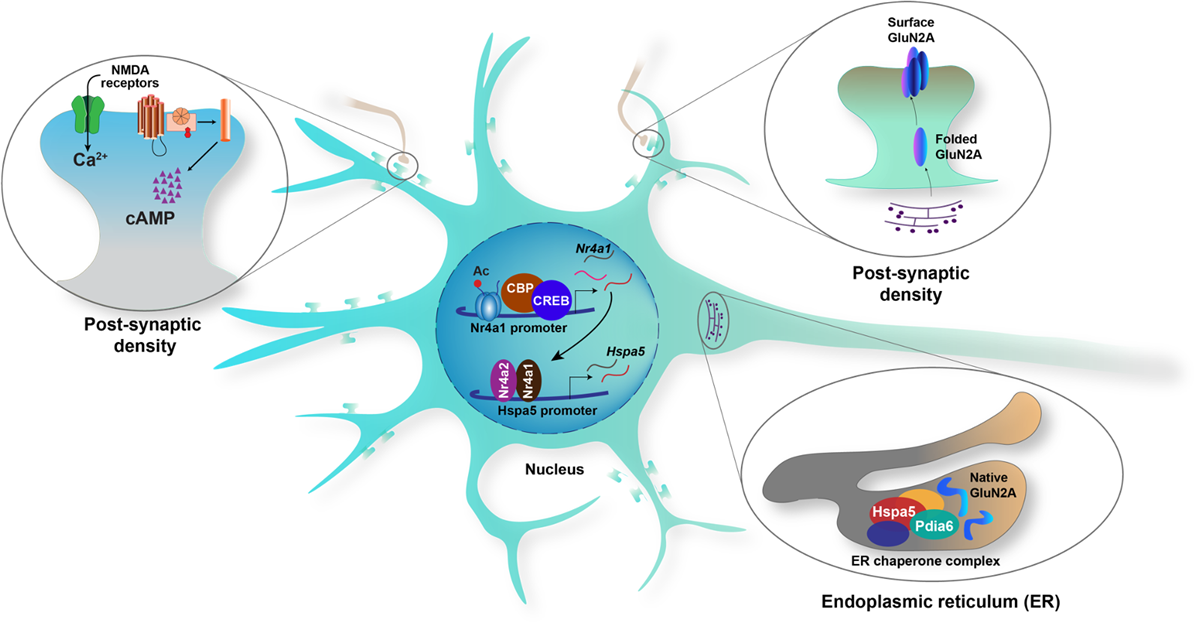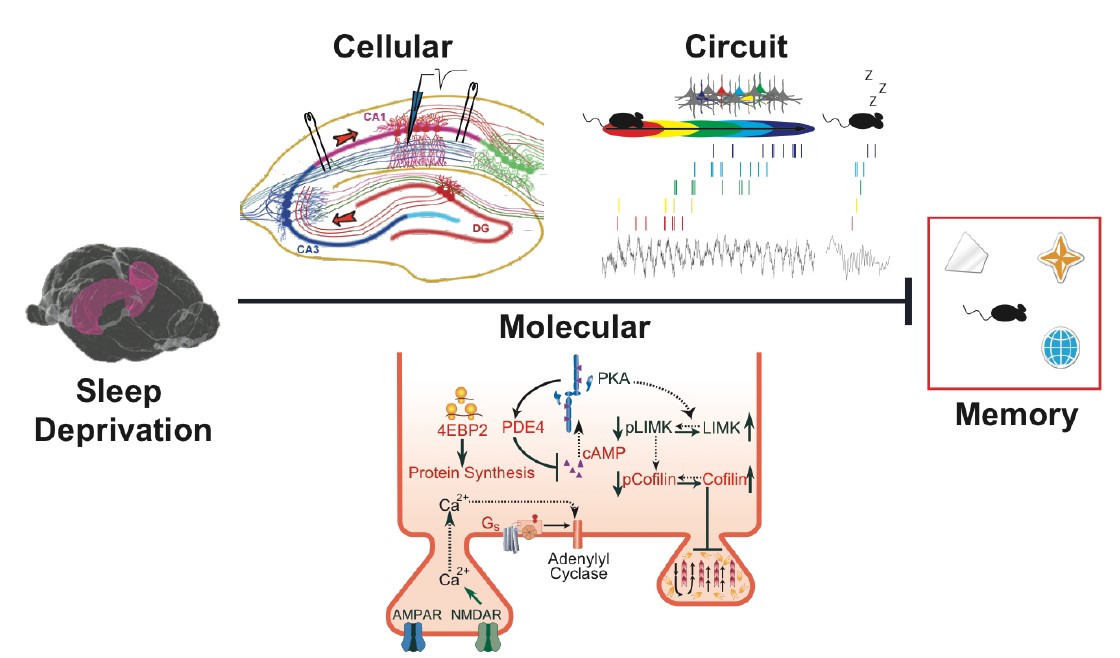Breadcrumb
- Home
- Research
Research
Epigenetic mechanisms of long-term memory consolidation
In the hours after learning, the activation of gene expression follows a specific pattern, producing transient waves of expression needed for long-term memory consolidation. These changes require non-genetic (i.e., “epigenetic”) events, including modifications to: DNA-organizing proteins known as histones, the DNA itself, and the accessibility of DNA to proteins. Additionally, the molecular changes necessary for memory require a form of RNA-based regulation. In the absence of such changes, the long-lasting regulation of gene expression during memory storage fails, and this could account for defects in memory that accompany many neurodevelopmental and neuropsychiatric disorders. Our long-term goal is to define novel epigenetic mechanisms underlying memory storage and synaptic plasticity by taking advantage of recent advances in our understanding of histone modifications, in the development of single-cell RNA technology, and in the function of regulatory mechanisms mediated by small noncoding RNAs. In our recent work, we have identified downstream targets of these epigenetic modifications that drive protein folding in the endoplasmic reticulum and examined activity dependent changes in gene expression using spatial transcriptomics. This project is supported by an NIH research grant R01MH087463.

The effects of sleep deprivation on long-term memory
Sleep deprivation presents an increasing threat to individual health and public safety as well as an economic burden due to lost productivity, traffic accidents, occupational accidents, and skyrocketing healthcare costs. Sleep deprivation induces significant impairments in memory, aggravates psychiatric, neurodevelopmental, and neurological disorders and increases disease risk, especially for neurodegenerative disorders such as Alzheimer’s disease and related dementias. We have found that brief periods of sleep deprivation decreases cAMP signaling and protein synthesis and alters dendritic spine density in the hippocampus leading to impairments memory consolidation and synaptic plasticity. We are now identifying the impact of sleep deprivation on systems electrophysiology in the hippocampus during reactivation and replay with Kamran Diba at the University of Michigan. At the molecular level, we are characterizing the impact of sleep deprivation on protein synthesis and gene expression using single cell approaches and spatial transcriptomics in collaboration with Lisa Lyons at Florida State University. These projects are supported by NIH research grants R01AG062398 and R01MH117964.

The role of striatum in neurodevelopmental disorder (NDD)
Cognitive deficits accompany many neurological, psychiatric and neurodevelopmental disorders. We are interested in using mouse models to understand the structural, behavioral, and genetic underpinnings of schizophrenia and autism spectrum disorder. After an extensive study of behavioral phenotypes in several mouse models, our lab currently focuses on studying one of most common genetic variations, the 16p11.2 deletion. Our work has revealed male-specific deficits in reward learning in mice carrying a deletion of the 16p11.2 region. These mice also exhibit hyperactivity and enhanced motor learning. These behaviors share a common characteristic in that they all are mediated by cortico-straital circuits. In our ongoing efforts to identify molecular mechanisms underlying the motor and reward systems in the striatum, we are using single nuclei RNAseq (snRNAseq) analyses as well as spatial transcriptomics combined with cell type specific deletion of the 16p11.2 region. These projects are in part supported by the NIH program project for the University of Iowa Hawkeye Intellectual and Developmental Disability Research Center (Hawk-IDDRC; P50HD103556).
